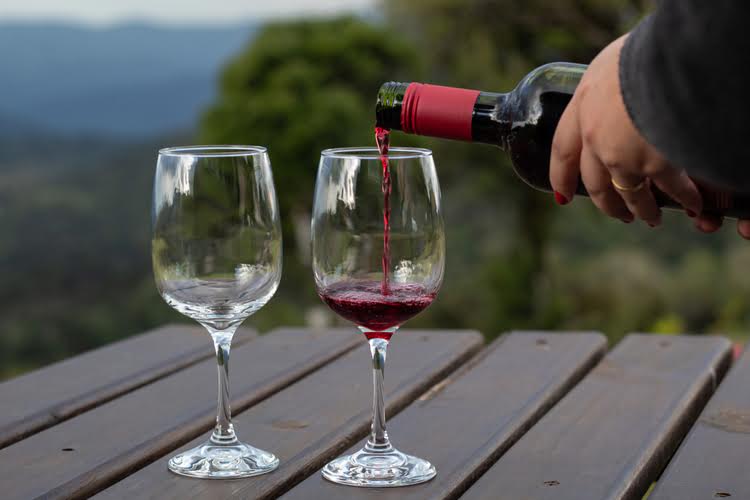Content
Even if they don’t fully understand, it’s better to be around people who care about you and experience their care than try to hideaway. After leaving treatment, it’s important to find ways to keep yourself busy. Spending too much time alone with your thoughts is one of the reasons why people are compelled to start using drugs and alcohol again. Focus on finding new hobbies, whether it’s art, exercise, cooking, volunteering, or anything https://ecosoberhouse.com/ that occupies your mind and makes you feel good. With the help of a therapist, a professional addiction counselor, or a sponsor, try to analyze your relapse and create a plan to avoid a similar scenario in the future. This should include triggers, coping tactics, and specific people in your support network who you can ask for help. It is important that you recognize the reason for your relapse, and make the necessary changes.
- We also have psychiatrists, counselors and social workers on staff to provide a full spectrum of care.
- However, a relapse doesn’t mean that the previous progress has been erased entirely, or that an individual can’t return back to a lifestyle of sobriety or moderation.
- Remember that after a physical relapse, recovery is not hopeless.
- You might need to go back to your support system and admit that you need treatment again.
- I won’t bail you out of legal or financial trouble tied to drug and alcohol misuse.
Making friends is hard enough but joining a support group offers you an avenue to new friendships and people who will keep you accountable and on the path of your recovery goal. In this case, relapse will refer to using drugs and alcohol again after a long period of abstinence. Relapse may occur for many reasons, and unfortunately, it’s quite common. I have wrecked my finances after clearing debt from two credit cards during the six months. Alcohol opens the floodgates then I am going to the worst neighborhoods to get drugs. Huge binges blowing all of my money and being with people who I let take advantage of me.
Getting Back On The Road To Recovery
It is crucial to understand how certain things can sabotage sobriety, such as dysfunctional family dynamics, toxic friendships, social isolation and unhealthy daily routines. Clearly identifying triggers early on can help you protect your newfound sobriety. Without a firm commitment to long-term sobriety, you’re more likely to relapse. To be successful, you must be willing to put in the hard work required to stay sober.
Support groups for sobriety like SMART Recovery (smartrecovery.org) differentiate between a relapse and a slip. They consider a slip to be a brief, one-time event that couldn’t be foreseen.
Reach out to Your Support Network
There’s a difference between supporting and enabling. If you’re wondering what to do when someone relapses, this is at the top of the list. Keeping healthy boundaries right now can mean the difference between them getting the substance abuse treatment they need or spiraling further into a relapse. The main message that comes across with boundaries is that you love them and support them, but you will not support their self-destructive behaviors like alcohol and drug abuse.
Identifying and feeling guilt, shame, and resentment can decrease them. Process these emotions with a therapist or other support resources. Guilt and shame can occur after a relapse due to fear of judgment or because of the expectations that you’ve put on yourself. You are an important part of your loved one’s long-term recovery. Research shows when people believe that their family supports them in their recovery, they have a better chance of staying sober.
Triggers and Warning Signs of Relapse: What to Look Out For
Rather, it is another step on your continuing path to recovery and a sign that you need additional support and help. Our treatment programs are custom tailored to your specific needs. One phone call is all it takes to start your recovery from drug & alcohol dependency. Conversely, people with ineffective or poor coping responses (with decreased self-efficacy) can result in an initial lapse, particularly when there is the expectation that drug use will have a positive effect. This lapse, in turn, can result in feelings of guilt and failure, i.e., the “abstinence violation effect. This abstinence violation effect, along with a perceived positive outcome, can increase the probability of a relapse. However, the high number of people going through the addiction recovery process has never been successfully dealt with.

You might remember some things that were helpful the first time. Or, you might have ideas about what could have made the process easier. Withdrawal symptoms from substance or alcohol abuse can vary. Your detox after relapse depends on how long your relapse has occurred and how much you used.
What is the Definition of Relapse?
Paying attention to those warning signs can help you spot a potential relapse before it turns into something more serious. People on the brink of relapse usually exhibit behaviors that they showed during the peak of their addiction. They might also show symptoms like anxiety, depression, insomnia, trouble focusing, and poor judgment. If the person is continuing to get treatment, they may stop attending meetings or therapy what to do after a relapse sessions. Maintaining a hopeful outlook, understanding relapse triggers, and building a support system can help you rebound from an alcohol relapse. All of these things may be important for you on your path to recovery following a relapse, but you know yourself best, and what you as an individual might need to focus on the most. Just remember that relapse can be just a stepping stone on your long-term road to recovery.

A professional clinician who deals with substance use disorder can help you pinpoint your triggers and develop coping methods for them. Ask for help from trusted family members and friends to give you the support you need to prevent any future relapse. If you find yourself having relapsed, it is crucial to first accept that the relapse happened and then to find a way forward. Let go of guilt and shame surrounding the slip and create a strategy for avoiding relapsing again. If you could summarize all the advice of this article into one word, it would be this – ACT.
Go Back to Treatment
Look at your answers to determine what changed and how you can keep yourself accountable. Let’s make it clear that relapse does not mean you’ve failed. It just means you need to change your approach to sobriety. If you’ve relapsed or known someone who has, please review these tips on what to do after a relapse that can help. A person may relapse after a long period of experiencing stress at work or following a breakup or divorce. The reasoning might be as simple as a lack of motivation to continue their sobriety. This relapse was severe and to say I have been beating myself up about it is putting it mildly.
- I cannot recommend 12 Keys at the River enough for those struggling with addiction.
- If you are facing relapse, call for the support and information that one of our admissions navigators can provide today.
- Holding your boundaries when someone relapses may feel like kicking them when they’re down, but that’s not the case.
- If an individual is not in an intimate relationship when they enter recovery, it is often encouraged to stay out of one for several months or even a year, until they are more stable in their recovery.
- He is the medical director at Alcohol Recovery Medicine.